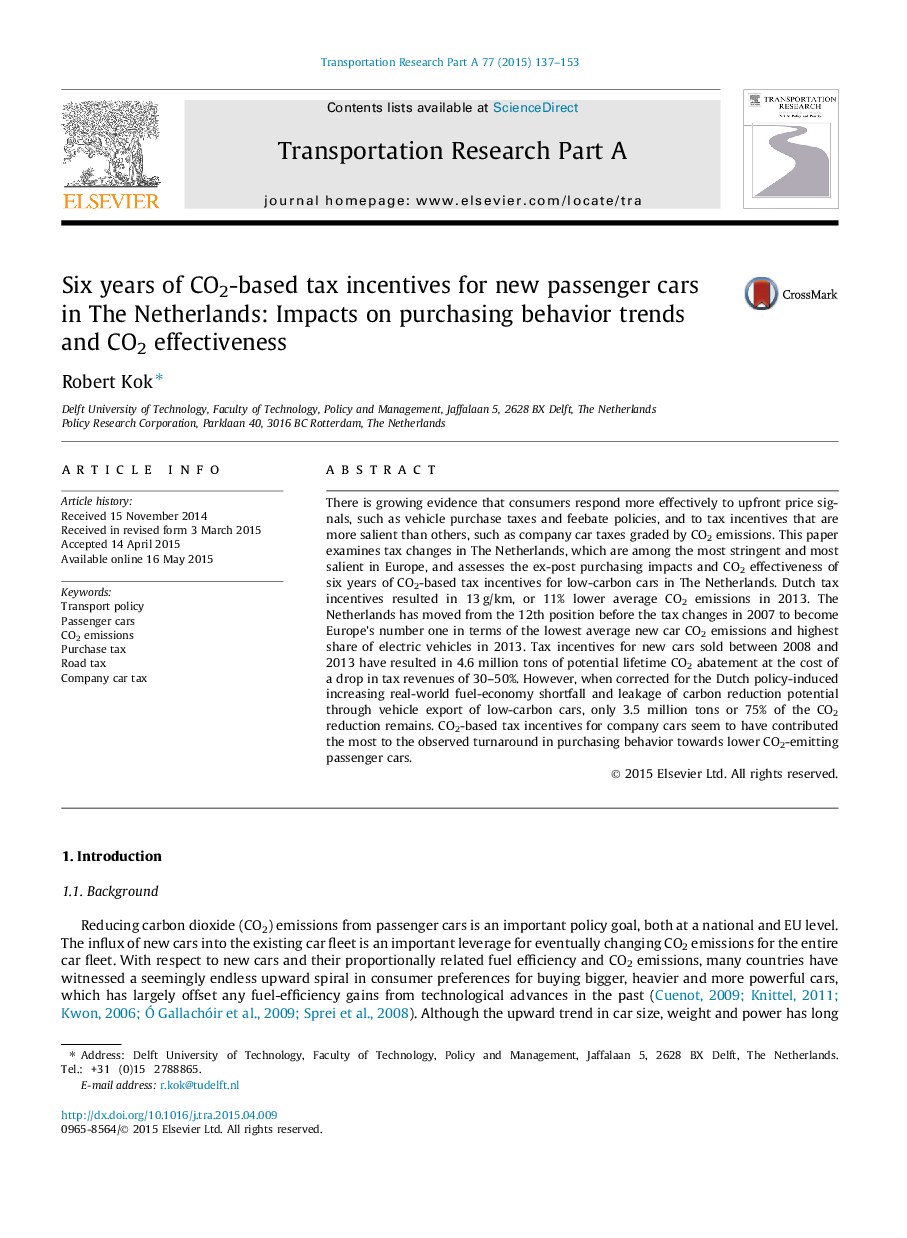ترجمه فارسی عنوان مقاله
مشوق های مالیاتی شش ساله مبتنی بر CO2 برای اتومبیل های سواری جدید در هلند: اثرات بر روی روند خرید رفتار و اثربخشی CO2
عنوان انگلیسی
Six years of CO2-based tax incentives for new passenger cars in The Netherlands: Impacts on purchasing behavior trends and CO2 effectiveness
| کد مقاله | سال انتشار | تعداد صفحات مقاله انگلیسی |
|---|---|---|
| 49875 | 2015 | 17 صفحه PDF |
منبع

Publisher : Elsevier - Science Direct (الزویر - ساینس دایرکت)
Journal : Transportation Research Part A: Policy and Practice, Volume 77, July 2015, Pages 137–153
ترجمه کلمات کلیدی
سیاست حمل و نقل - اتومبیل های مسافری - انتشار گاز CO2 - مالیات بر خرید - عوارض جاده - مالیات بر خودرو شرکت
کلمات کلیدی انگلیسی
Transport policy; Passenger cars; CO2 emissions; Purchase tax; Road tax; Company car tax

